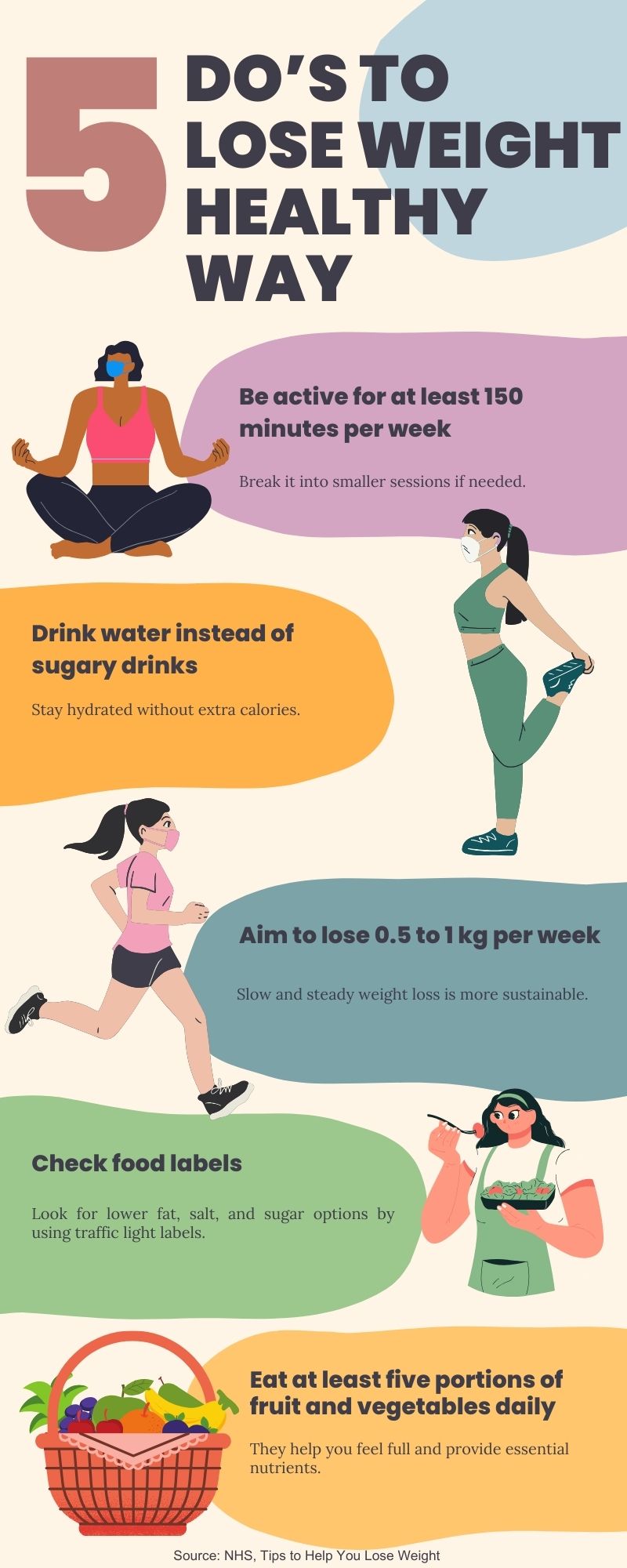With obesity rates rising more people are turning to weight-loss injections hoping for an easy fix. But one Cardiff expert questions if medication alone can lead to lasting weight loss.

When you scroll through social media, you see them everywhere. Before-and-after photos of people celebrating their weight-loss success fill your feed. They say weight-loss injections like Ozempic and Mounjaro finally helped them achieve what years of dieting couldn’t.
But for Orla Adams, the Dietetic Lead for Maternal Weight Management at Cardiff and Vale University Health Board, the reality isn’t always so simple. “For some, without the right support or lifestyle changes, the injection is just a short-term fix. Once they stop, the weight comes back,” she says.
“I have seen some fantastic results for people who have struggled with weight loss,” she says. “The people I’ve worked with, who take the injection, it helps them step back from food, manage hunger and cravings, and in doing that, it helps them really look at habits and behaviors around food. Otherwise, they’re just caught in that sort of cycle of hunger and needing high-carbohydrate, ultra-processed food.”
Many people struggle to maintain their weight loss despite the initial success of injections. Adams says this is because the body naturally resists weight loss. “The most common mistake is to drop the calories too low,” she says. “People go on very low-calorie diets, or they eat less than what their body needs. Even below 1,500 calories can be far too low for many people.”

“Extreme calorie restriction triggers the body’s survival mechanisms, slowing metabolism and making further weight loss increasingly difficult.
“As a result, the body burns fewer calories and slows down to conserve energy and fat stores. This is part of human genetics from history, as our bodies are naturally designed to resist weight loss.”
Another major challenge is the plateau effect, when weight loss stalls despite continued efforts. Many people, expecting steady progress, panic when their weight stabilizes.
“With the right amount of calories and exercise, the body doesn’t lose weight in a straight downward line,” says Adams. “It doesn’t just go steady—two pounds a week or anything. The weight loss for people drops a bit, stabilizes, drops again, stabilizes again. But when a person’s weight stabilizes, they think ‘It’s not working!’ They get disheartened, and they think they need to do something different. They get frustrated, and so they give up.”

This frustration often drives people toward weight-loss injections, hoping to bypass these biological obstacles. But without addressing long-term lifestyle and behavioral factors, the weight almost always comes back.
“Another big mistake is that people become too strict with what they eat, and then there’s a counter-effect: they binge. They are so restrictive that they can’t sustain it. And then they crave other foods, so they swing between extreme restriction and overeating.”
Weight-loss injections alone are not a long-term solution. Adams says sustainable weight loss comes from small, gradual changes over time rather than extreme dieting or relying solely on medication. “If I could say one thing to people: Don’t be put off by the stable periods. They are actually really helpful. Your body needs time to readapt, and then it will allow further weight loss again,” says Adams.
“Don’t make too many changes at once. If people make small, step-by-step changes, they will lose weight very slowly, but they are less likely to regain.”
“Any successful weight loss is a combination of changing what you eat and moving more. Increased physical activity is beneficial for many health factors, even beyond weight loss. But for maintaining weight loss, movement is essential.”

While personal choices play a role in weight management, government policies and the food industry also shape the environment people live in. Adams believes systemic changes are needed to make healthy choices more accessible.
“The government needs to take action by reducing the number of fast food restaurants, increasing the availability of healthy food in supermarkets, and changing how supermarkets display their products,” says Adams.
Some policies have already made an impact. Adams says the UK’s sugar tax has helped reduce fizzy drink consumption by increasing the cost of sugary drinks and foods. But she believes more needs to be done, particularly in addressing the marketing strategies of food companies that push unhealthy, ultra-processed foods onto consumers.
“The most helpful thing to do is to be aware of your habits around food. Once you understand what’s happening, you can make changes that are actually sustainable,” says Adams.
